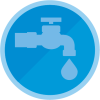Climate Action Roadmap for Rural Communities — Three Session Online Course SESSION 1
Rural communities are feeling the effects of climate change and are instrumental to many climate solutions that are being discussed and implemented. But innovations and policy decisions are often made with rural communities as an afterthought. You may feel your town is too small to make much of an impact or to take the reins, or you don't have a lot of resources to invest in engaging your community. This course will help you understand how to build awareness and participation, design solutions, and take action together. You will create a roadmap for engaging your community on climate solutions and identify one or two initial projects to get the ball rolling. The course includes templates and examples from other rural communities.
Course instructor: Michele Archie, co-author of Climate Choices: How Should We Meet the Challenges of a Warming Planet? and the accompanying facilitator guide. Michele has long experience with engagement and action in rural communities across the U.S.
Three weekly sessions - Thursdays - March 19-April 2, 2020 - 12 p.m. PT/3 p.m. ET (sessions available for replay in case you need to miss a session or want to listen again)
Fee: $260 before March 13, $400 after March 13
Sessions: Three, one-hour live webinars with plenty of time for discussion and learning from other participants. Available for replay in case you miss a session or want to listen again.
- Engaging Your Community — understanding your starting point and building strategies for awareness, education and insights.
- Designing Solutions — bringing your community together to explore solutions and make concrete plans.
- Sustaining Action — build momentum starting with a leveraged project or two, plug into support networks and track progress.
Plus
- One-on-one pre-course telephone consultation so we can better understand your community and your goals.
- Templates and examples from other communities.
- One-on-one coaching call to help you fine-tune an approach that meets your community’s unique situation and needs.
Who is this for? Civic groups • Business & economic development leaders • Concerned residents • Elected officials • Conservation organizations • Community organizers • Environmental educators and EE organizations • Extension & community development professionals • High school and college students



